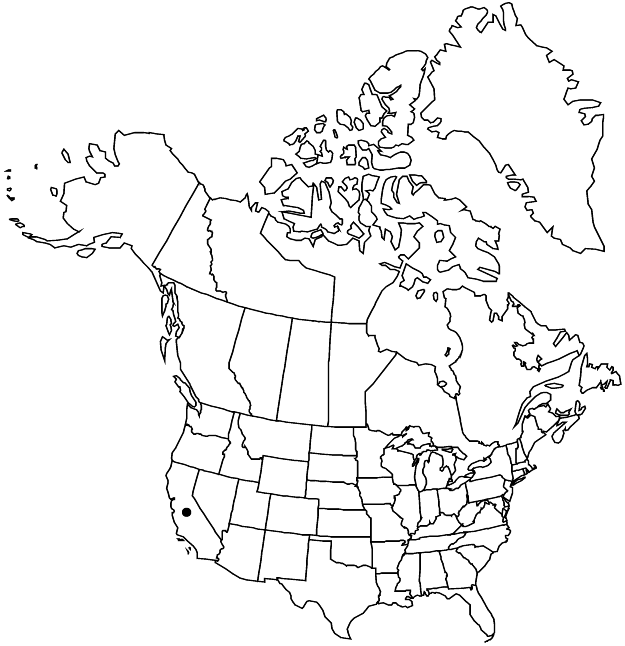Difference between revisions of "Eriogonum congdonii"
Aliso 7: 220. 1970.
FNA>Volume Importer |
FNA>Volume Importer |
||
| Line 11: | Line 11: | ||
|name=Eriogonum ursinum var. congdonii | |name=Eriogonum ursinum var. congdonii | ||
|authority=S. Stokes | |authority=S. Stokes | ||
| + | |rank=variety | ||
|publication_title=Eriogonum, | |publication_title=Eriogonum, | ||
|publication_place=114. 1936 (as congdoni) | |publication_place=114. 1936 (as congdoni) | ||
| Line 17: | Line 18: | ||
|name=Eriogonum ternatum var. congdonii | |name=Eriogonum ternatum var. congdonii | ||
|authority=(S. Stokes) J. T. Howell | |authority=(S. Stokes) J. T. Howell | ||
| + | |rank=variety | ||
}} | }} | ||
|hierarchy=Polygonaceae;Polygonaceae subfam. Eriogonoideae;Eriogonum;Eriogonum subg. Oligogonum;Eriogonum congdonii | |hierarchy=Polygonaceae;Polygonaceae subfam. Eriogonoideae;Eriogonum;Eriogonum subg. Oligogonum;Eriogonum congdonii | ||
| Line 41: | Line 43: | ||
-->{{#Taxon: | -->{{#Taxon: | ||
name=Eriogonum congdonii | name=Eriogonum congdonii | ||
| − | |||
|authority=(S. Stokes) Reveal | |authority=(S. Stokes) Reveal | ||
|rank=species | |rank=species | ||
| Line 56: | Line 57: | ||
|publication year=1970 | |publication year=1970 | ||
|special status= | |special status= | ||
| − | |source xml=https://jpend@bitbucket.org/aafc-mbb/fna-data-curation.git/src/ | + | |source xml=https://jpend@bitbucket.org/aafc-mbb/fna-data-curation.git/src/f50eec43f223ca0e34566be0b046453a0960e173/coarse_grained_fna_xml/V5/V5_725.xml |
|subfamily=Polygonaceae subfam. Eriogonoideae | |subfamily=Polygonaceae subfam. Eriogonoideae | ||
|genus=Eriogonum | |genus=Eriogonum | ||
Revision as of 21:56, 16 December 2019
Subshrubs, spreading to erect, synoecious, 1.5–5 × 1–3 dm, floccose or glabrous. Stems: caudex spreading to somewhat erect; aerial flowering stems erect, slender, solid, not fistulose, arising at nodes of caudex branches and at distal nodes of short, nonflowering aerial branches, 1–2(–2.5) dm, thinly floccose or glabrous. Leaves in rather compact basal rosettes; petiole 0.2–0.8 cm; blade narrowly elliptic to narrowly oblong, 0.5–2 × 0.3–0.6(–0.8) cm, densely white-tomentose abaxially, thinly floccose or glabrous and olive green adaxially, margins entire, revolute. Inflorescences umbellate, 0.3–3 × 1–3.5 cm; branches thinly floccose or glabrous; bracts 3–4, semileaflike, lanceolate, 0.1–0.5 × 0.1–0.3 mm. Involucres 1 per node, turbinate, 5–6 × 3–4 mm, tomentose; teeth 6–8, erect, 0.5–2 mm. Flowers 4–6 mm, including 0.4–0.6 mm stipelike base; perianth sulphur yellow, glabrous; tepals monomorphic, obovate; stamens exserted, 4–5 mm; filaments pilose proximally. Achenes light brown, 4–5.5 mm, glabrous except for sparsely pubescent beak.
Phenology: Flowering Jul–Sep.
Habitat: Gravelly serpentine slopes and outcrops, manzanita communities, montane conifer woodlands
Elevation: (1000-)1500-2300 m
Discussion
Eriogonum congdonii is an elegant subshrub restricted to the mountains of central-northern California (southern Siskiyou and northern Trinity counties). It is worthy of serious consideration as a garden introduction even though it typically occurs on nearly raw, greenish-black serpentine outcrops. In that setting, the olive green leaf blades, the bright green and nearly glabrous flowering stems and inflorescence branches, and the dense clusters of rich sulphur-yellow flowers make a beautiful contrast.
Selected References
None.
